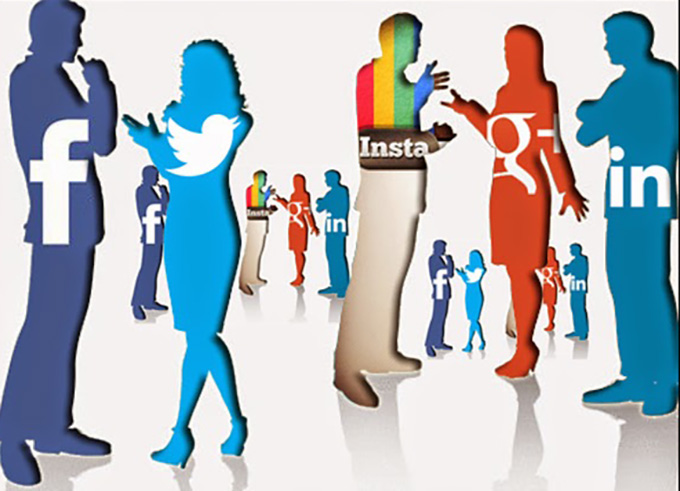
Today’s society has suffered, in the last two decades, a true revolution in terms of the way of communicating and relating through new technologies. Social networks have experienced exponential growth and have become an integral part of most people. These digital platforms, such as Facebook, Instagram, Twitter, and Snapchat, have transformed the way we communicate and socialize.
If there is a sector of the population in which the use of new technologies has penetrated with special depth, this is that of young people. Now, what costs can this new way of relating to us produce on a personal level? Has the dynamic of social interaction changed? This question becomes especially relevant when it is verified that the use of social networks comes to absorb other fundamental spheres of adolescents’ lives such as study, family and even leisure.
Connection and leisure
In a 2020 study by the National Youth Institute (Injuve) it is found that youth, in general, use the internet to carry out three outstanding activities: connecting to social networks (Instagram, TikTok, etc.), listening to music and watch series and movies online . This is interesting because it implies that both activities traditionally carried out off the Internet and new forms of relationship over the Internet are internalized as daily leisure habits.
Social media has provided young people with a number of novel ways to connect with friends, family, and strangers virtually. Through these interactive platforms, they can share photos, videos, thoughts and emotions instantly and globally. This ability to connect immediately, coupled with a sense of anonymity, has broken down geographic barriers and made it easier for young people to connect with people from around the world.
However, this virtual connection has also led to negative changes in the way young people interact. Instead of face-to-face conversations, interactions often occur through text messages, comments, or online posts. This has an impact on the quality and depth of relationships, as non-verbal communication and contextual cues can get lost in the digital world. Furthermore, the lack of time and space restrictions on social networks easily leads to a feeling of disconnection with reality and a tendency to spend more time in the virtual world than in the real world.
The development of digital identity
Another important aspect of the impact of social networks on the way young people socialize is the development of a digital identity .
Through social platforms, young people can build and present an idealized version of themselves. They may carefully select the photos and messages they post to project an image they find attractive or desirable. This practice often generates social pressure due to the difference between real and edited identity, as well as a constant search for validation and approval online.
For the same reasons, social media culture often leads to constant comparison with others. Contemplating the seemingly perfect lives of others online, it is easy for young people to develop feelings of envy, insecurity and low self-esteem. This can negatively affect your emotional well-being and your ability to form healthy relationships outside of the virtual world. In addition, the obsession with maintaining a certain image can lead to both a lack of authenticity and a difficulty in appearing vulnerable in face-to-face interactions.
The power of online communities
Despite these challenges and concerns associated with social media, it is also important to recognize its positive potential for building online communities. Social media is a great way to connect people with similar interests, whether it’s sports, music, art, activism, or anything else.
Thus, these online communities provide a safe and supportive space where young people can share their passions, find inspiration and form meaningful relationships.
On the other hand, social networks have provided a platform for young people to express themselves and promote social change. In fact, they have been a key tool in movements like climate change activism, LGBTQ+ rights, and racial and social justice. The ability to connect and mobilize through social media has proven to be a powerful force for social change and creating a united consciousness among youth.
Likewise, it has become a key vector for critical thinking and reflection by generating various channels of participation that help to bring culture closer to all people, while promoting values such as pluralism, freedom, cultural democracy, participation social, personal autonomy and human relations.
Balance and awareness
Undeniably, social networks have had a significant impact on the way young people socialize, opening up new opportunities for connection and communication, and at the same time generating new challenges. For this reason, it is important to teach young people to learn to balance their virtual life with their real life, as well as to be aware of the impact that social networks can have on their emotional well-being. Furthermore, it is essential to foster a culture of authenticity and respect on social platforms, promoting empathy and understanding online.
Ultimately, social media is a powerful tool that can facilitate interaction and connection, but it can also easily distort the way we relate to and perceive ourselves and others. As a society, we must encourage a healthy and responsible use of social networks, recognizing their potential for human development, but at the same time adopting and taking measures to mitigate the negative effects.
And it is that only through a balanced and thoughtful approach can we make the most of the potential of social networks and their impact on the way our young people socialize.
Author Bio: Marcos Garcia-Vidal is an Adjunct Professor at the International University of Valencia
